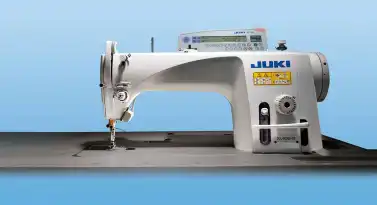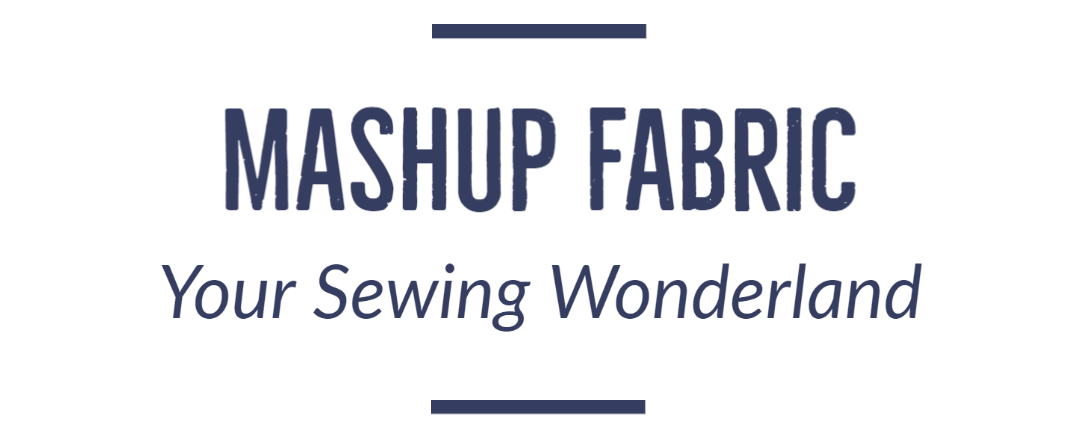I Tested The Juki DDL-9000B – Here’s My Honest Review
The Juki DDL-9000B is a premier industrial sewing machine known for its speed, reliability, and consistent stitch quality.
This single needle lockstitch machine is designed for medium to heavy weight fabrics and is ideal for professional sewing and production environments needing high volumes of straight stitching.
The DDL-9000B features a powerful motor enclosed in the table which allows for sewing speeds up to 5000 stitches per minute.
It also has an adjustable presser foot for working with varying fabric thicknesses. One of the highlights of this Juki model is the advanced thread trimming system which efficiently cuts and resets the thread between sewing operations.
Overall, the Juki DDL-9000B offers many automated functions and optimized sewing abilities that make it a top choice among garment factories and upholstery workrooms alike.
This blog post will provide a comprehensive review of the key features, performance, and real world applications of this industrial workhorse machine.
Juki DDL-9000B Specifications and Features

The Juki DDL-9000B industrial sewing machine comes loaded with advanced features and capabilities that enable high productivity straight stitching. Here are some of the key specs and details:
High Speed Sewing
- Maximum sewing speed of 5000 stitches per minute
- Powerful compact servomotor allows high torque and wide speed range
- Foot pedal has excellent responsiveness for precision control
Optimized Stitch Quality
- Dry head technology prevents oil stains on fabric
- Special grease lubrication improves durability
- DLC coating on needle bar minimizes friction
Automated Functions
- Thread trimming system is 2x faster than conventional methods
- Automatic backtacking at start and end of seams
- Programmable needle up/down stopping position
- Handy knee lifter for the presser foot
Low Noise and Vibration
- Silent operation from optimized mechanical noise reduction
- Direct drive transmission further reduces noise and vibration
- Makes extended sewing periods less fatiguing
Energy Efficient
- New control box with energy saving mode reduces power consumption
- Sleep mode during idle periods decreases energy use by 20%
- Eco-friendly design overall with minimal lubrication needs
Heavy Duty Build
- Durable metal internal components and body
- Table designed for stability at high speeds
- Protected motor integrated into the table assembly
| Specification | Measurement |
|---|---|
| Stitch Length | Up to 5mm |
| Needle Bar Stroke | 30.7mm |
| Needle Size | #9 – #18 |
| Presser Foot Lift | 15mm |
| Bed Size | 517 x 178mm |
| Sewing Motor | Servo, 320W power |
| Machine Weight | 38kg |
With this impressive range of capabilities, it’s easy to see why the Juki DDL-9000B is trusted for heavy duty sewing and garment construction jobs requiring the highest productivity and stitch appearance.
Benefits and Advantages
The Juki DDL-9000B offers many benefits that make it a top choice for professional sewing and garment production applications. Here are some of the key advantages of this industrial machine:
Reliability is one of the hallmarks of the Juki DDL-9000B. The precision machined components and optimized lubrication system allow the machine to maintain quality performance even during extended periods of continuous operation. This robustness reduces downtime and keeps productivity high.
The Juki DDL-9000B also provides very consistent, high quality stitching on a diverse range of fabrics. Features like the machined bed surface, adjustable presser foot pressure, and specialized needle bar coating all contribute to superior stitch formation across many material types and thicknesses. This versatility supports efficiency in mixed product environments.
Speed and penetrating power are two other major benefits of the Juki DDL-9000B. The integrated servo motor gives it the ability to breeze through thick and dense materials without slowing down. This allows industrial scale output of projects involving heavy duty fabrics like canvas, denim, and upholstery materials.
Some of the automated functions unique to the Juki DDL-9000B also enhance the sewing experience. The responsive foot pedal makes it easy to precisely control stitching speed. Meanwhile, the automated thread trimming reduces the need for tiresome manual back-tacking. Together these features reduce operator fatigue and human error during long sewing sessions.
Potential Issues to Note
While the Juki DDL-9000B is an excellent industrial sewing machine, there are a few potential downsides to be aware of:
One commonly noted frustration with the Juki DDL-9000B is the tedious threading process. There are multiple guides the thread must be passed through which can be time consuming to set up. Having reading glasses and good lighting helps make the process less difficult. This is a tradeoff for the positive tension and thread control benefits.
The specialized nature of the Juki DDL-9000B also means troubleshooting problems and repairs typically requires a professional. Operators will not be able to fix many issues on their own beyond basic cleaning and maintenance. Finding qualified service technicians may also be challenging in some regions.
Parts and accessory orders for the Juki DDL-9000B usually have minimum order quantities and shipping fees. Small items like replacement light bulbs or presser feet often cannot be purchased individually. This can seem wasteful if only one or two items are needed. Planning ahead helps minimize unnecessary part orders.
While the Juki DDL-9000B is quite versatile, computerized options may provide more value for some applications. The lack of built-in decorative stitches limits the creative possibilities. Embroidery machines and advanced overlock sergers are other alternatives to consider depending on usage requirements.
In summary, be prepared for finicky threading duties, potential servicing challenges, minimum order requirements, and basic stitch functionality compared to computerized sewing machines. However, for most industrial production environments, the Juki DDL-9000B remains an excellent choice.
Ideal Uses and Applications
The heavy duty construction and high speed straight stitching abilities of the Juki DDL-9000B make it well suited for certain sewing applications:
The Juki DDL-9000B is recommended for medium to heavy weight woven fabrics. Materials like denim, canvas, upholstery fabrics, outdoor gear materials, and more are able to be quickly processed thanks to the power and speed of this machine. The adjustable presser foot pressure also accommodates varying thickness.
High volume garment and fashion production environments benefit from implementing the Juki DDL-9000B.
The fast stitching speeds help maximize output for operations like sewing straight seams, hemming denim jeans, adding topstitch accents, and attaching trims or embroidery. Reliability is essential for minimizing downtime and costly delays.
Industrial workrooms focused on upholstery, mattresses, leather goods, shoes, bags, or other dense products are ideal users of the Juki DDL-9000B. The penetrating needle can handle multilayered sections of heavy fabrics with ease. This allows efficient construction of durable seams and hems.
If the main operations involve long stretches of straight stitch sewing on anything from bridal gowns to boat sails, the Juki DDL-9000B is likely the machine for the job. The effortless ability to maintain high speed stitching for extended periods is invaluable for productivity.
Juki DDL-9000B Reviews from Users
Here are some first-hand experiences with the Juki DDL-9000B from sewing enthusiasts and professionals:
Many reviewers praise the Juki DDL-9000B for its fast sewing speed, even at maximum settings. They find they are able to complete projects quicker than with other home or industrial machines. The precise foot pedal control allows sewing everything from sheer silks to heavy denim without issues.
However, some users warn about the difficulty of threading the Juki DDL-9000B and recommend getting reading glasses. They also caution about the learning curve with the machine’s control panel functions and display. Practicing on scrap fabric is advised to get familiar with the settings before sewing actual projects.
Overall though, most users agree the Juki DDL-9000B is an incredibly durable and capable industrial straight stitch machine. They recommend it for anyone needing speed, reliability, and quality stitches for sewing heavy fabrics or high volumes.
Recommendations for Purchase
If you are considering acquiring the Juki DDL-9000B, here are some tips:
The Juki DDL-9000B is a major investment, so carefully assess your production volumes and material types. For medium to high sewing loads involving thick fabrics, this machine will excel. But computerized options may suit lighter loads and variety needs better. Also research required maintenance and availability of service technicians.
When ready to purchase, look for dealers that can provide the Juki DDL-9000B with a sturdy table and properly sized servo motor. This is important for stability when running at high speeds. Ask about trial periods and warranties as well since this is a major purchase.
While an expensive upfront cost, the Juki DDL-9000B should provide many years of productivity. For sewists and workrooms needing high speed straight stitching, it is an industrial sewing machine well worth consideration.
Read: Unbiased Juki MO-104D Serger Overlock Machine Review
Tips for Operating and Maintaining
To keep your Juki DDL-9000B running smoothly, follow these recommendations:
- Carefully follow the threading diagrams, especially for the needle. Use magnification if needed. Bad threading can cause many issues.
- Schedule periodic maintenance checks by qualified technicians as recommended. This prevents problems and ensures long term operation.
- Stock up on extra needles, bobbins, presser feet, and light bulbs so you have spares ready when needed. Look for bulk deals on consumables.
- Practice sewing on scrap materials and lower speeds until you get familiar with the controls and features. Slowly work up to max speed once comfortable.
- Clean lint and threads around key areas like the hook race and feed dogs regularly. Follow the user manual for full cleaning instructions.
- Consider adding a needle oiler, fume extractor, table storage, and other handy accessories to optimize your sewing station setup.
With proper care and maintenance, your industrial Juki DDL-9000B machine will be a reliable production workhorse for many years of heavy duty sewing work.
Read: Juki DDL 5550 Review: Is This Industrial Sewing Beast Worth Your Money?
Alternatives to Consider
While the Juki DDL-9000B is an excellent industrial straight stitch sewing machine, here are some other options to consider for different use cases:
- Juki DDL-8700 – This single needle lockstitch machine is better suited for light to medium weight fabrics. It has a maximum speed of 5500 stitches per minute. The DDL-8700 includes similar automated features as the DDL-9000B but in a more compact package. It’s a good alternative for sewists that don’t need the higher speed or penetration power.
- Brother 1034D – For sewists that only occasionally need industrial capabilities, the Brother 1034D is a sturdy servo motor-driven machine with speeds up to 1200 stitches per minute. It includes built-in stitches like zigzag in addition to straight stitching. The 1034D is substantially less expensive than Juki industrial models while still being powerful enough for most jobs.
- Juki HZL-F600 – This computerized machine provides both straight stitch and decorative stitch options. The HZL-F600 has an automatic thread cutter, 210 built-in stitches, and maximum 900 stitches per minute. The LCD touchscreen and helpful programming make it easier to use. It’s a great hybrid between digital versatility and industrial speed.
- Juki TL-2000Qi – For advanced quilting, sewing, and embroidery, this combination machine truly does it all. It switches between a straight stitch sewing machine to a wide area quilting machine to a full-featured embroiderer. The TL-2000Qi is the ultimate machine in terms of flexibility and decorative abilities.
Consider factors like budget, production volumes, material types, and feature needs when deciding which industrial or heavy duty sewing machine is the best fit for your work.
